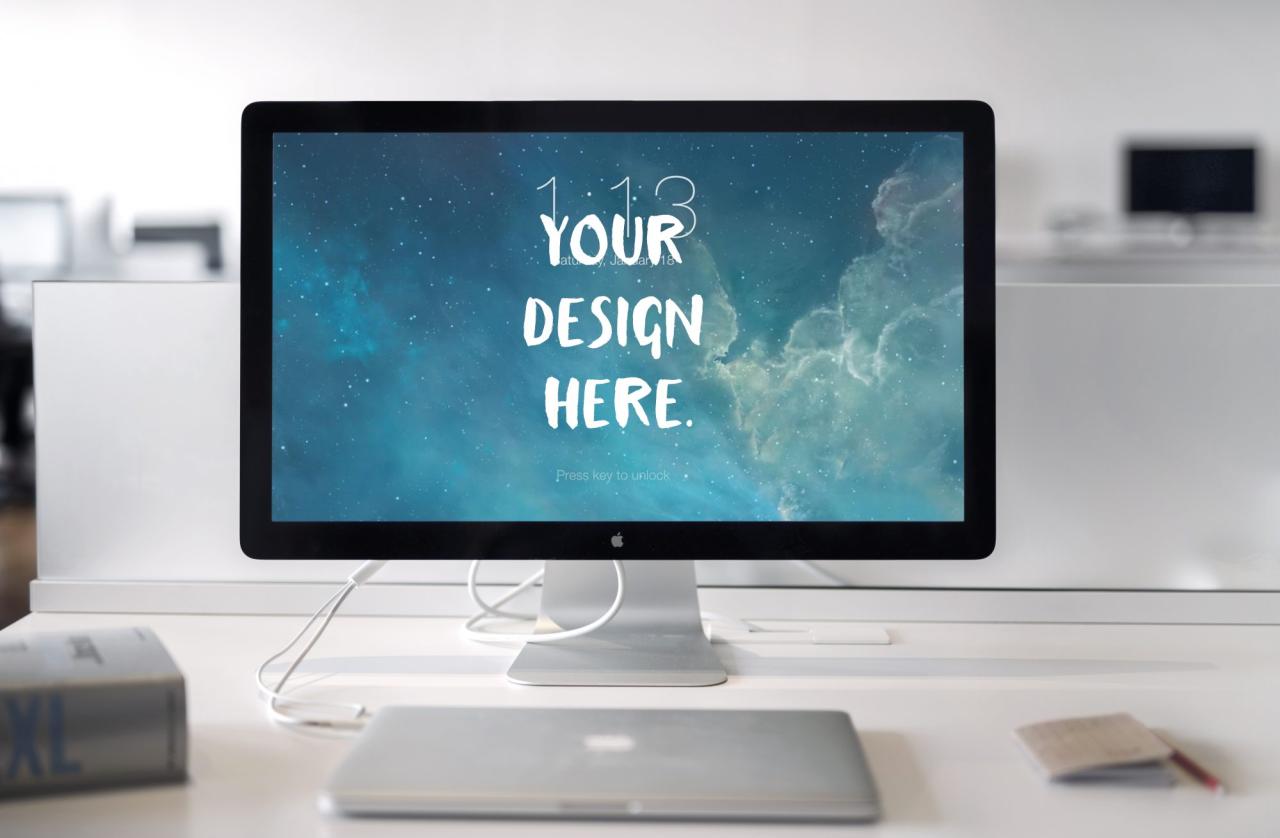
Website Mockups: A Comprehensive Guide to Free and Premium Options
Introduction
In the realm of web design, website mockups serve as indispensable tools for visualizing, prototyping, and refining the user experience (UX) of a website. These digital representations provide a tangible foundation for designers and developers to collaborate effectively, ensure alignment with client expectations, and create websites that are both aesthetically pleasing and highly functional.
The Importance of Website Mockups
Website mockups offer a myriad of benefits throughout the web development process:
- Enhanced Communication: Mockups facilitate clear communication between designers, developers, and clients, minimizing misunderstandings and ensuring everyone is on the same page.
- Effective Prototyping: By creating interactive prototypes, mockups enable designers to test different design concepts, gather feedback, and iterate on the design before committing to code.
- User Experience Focus: Mockups help designers prioritize user experience by focusing on the flow of information, ease of navigation, and overall usability.
- Time and Cost Savings: Mockups can identify potential roadblocks early in the design process, preventing costly rework and delays during development.
Types of Website Mockups
Website mockups can be classified into two primary types:
- Low-Fidelity Mockups: These mockups prioritize functionality over visual aesthetics, focusing on the overall layout, navigation, and content structure. Low-fidelity mockups are typically created using wireframing or sketching tools.
- High-Fidelity Mockups: High-fidelity mockups provide a more refined and detailed representation of the final design, including visual elements, color schemes, and typography. These mockups are often created using design software such as Figma or Adobe XD.
Free Website Mockup Tools
For those with limited budgets or who prefer to explore free options, several reputable tools offer website mockup capabilities:
- Figma: A popular cloud-based design tool that provides a wide range of features for creating both low-fidelity and high-fidelity mockups.
- Canva: A user-friendly online design platform that offers a library of pre-built mockup templates and design elements.
- Sketch: A vector-based design software specifically tailored for creating high-quality website mockups.
- Adobe XD: A professional design tool from Adobe that includes advanced features for prototyping and user experience testing.
- Proto.io: A specialized prototyping tool that allows designers to create interactive and responsive website mockups.
Premium Website Mockup Tools
For designers seeking more advanced features and customization options, premium website mockup tools offer a broader range of capabilities:
- Axure RP: A powerful prototyping tool with robust functionality for creating interactive mockups and simulating real-world user interactions.
- InVision: A cloud-based design collaboration platform that includes features for prototyping, commenting, and version control.
- UXPin: A design tool specifically designed for user experience professionals, offering advanced features for prototyping, testing, and user flow analysis.
- Adobe Photoshop: A versatile image editing and design software that can be used to create high-quality website mockups.
- Adobe Illustrator: A vector-based design software that is ideal for creating scalable and customizable website mockups.
Choosing the Right Website Mockup Tool
The choice of website mockup tool depends on several factors, including:
- Project Requirements: The complexity and scope of the website will influence the necessary features and functionality of the mockup tool.
- Budget: Free tools may suffice for simple projects, while premium tools offer more advanced features for larger-scale projects.
- Skill Level: The skill level of the designers using the tool should be considered to ensure ease of use and productivity.
- Collaboration: Tools that support collaboration and feedback sharing are essential for projects involving multiple stakeholders.
- Platform Compatibility: The compatibility of the mockup tool with the target platform (e.g., web, mobile) should be verified.
Best Practices for Creating Effective Website Mockups
To create effective website mockups, it is essential to adhere to best practices:
- Start with a Plan: Clearly define the objectives and requirements of the mockup before beginning the design process.
- Focus on User Experience: Prioritize the user journey throughout the design process, ensuring the mockup is intuitive and easy to navigate.
- Use Relevant Content: Incorporate actual or placeholder content to provide context and make the mockup more realistic.
- Strive for Consistency: Maintain consistency in design elements, typography, and color schemes throughout the mockup.
- Seek Feedback and Iterate: Regularly gather feedback from stakeholders and use it to refine and iterate on the mockup until it meets the desired specifications.
Conclusion
Website mockups are essential tools for successful web design projects, enabling designers and developers to visualize, prototype, and refine the user experience. By understanding the different types of mockups, choosing the right tools, and adhering to best practices, designers can create effective mockups that contribute to the overall success of their websites.
FAQ
Q: What is the difference between a wireframe and a website mockup?
A: A wireframe is a low-fidelity representation that focuses primarily on the layout and functionality, while a website mockup is a more refined and detailed representation that includes visual elements and branding.
Q: Can I create website mockups without any design experience?
A: While some design experience is beneficial, several free and user-friendly website mockup tools are available that make it accessible to beginners with limited experience.
Q: What is the benefit of using a premium website mockup tool?
A: Premium website mockup tools offer advanced features such as prototyping capabilities, interactive elements, and collaboration tools, which can enhance the quality and efficiency of the design process.
Q: How do I export my website mockups?
A: Most website mockup tools allow for exporting mockups in various formats, including image files (e.g., PNG, JPG), PDF, and HTML for interactive prototypes.
Q: Can I use website mockups for client presentations?
A: Yes, website mockups are an excellent way to present design concepts to clients, enabling them to visualize and provide feedback on the proposed website.





